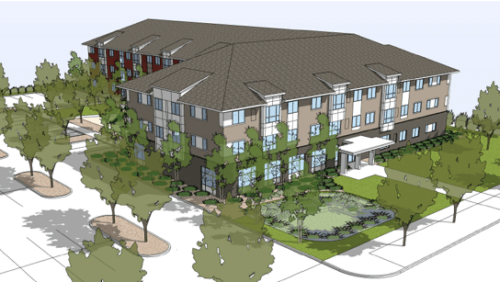Supportive housing works
“What you’re seeing is people who are mentally ill being labeled as criminals.”
–Hennepin County Sheriff Rich Stanek
Stanek’s quote is from a recent Star Tribune article about the impact of untreated mental illness in the jails.
Our society “de-institutionalized” many people with mental illness back in the 1980s, effectively sentencing many to years of chronic homelessness and mental and physical pain.
“’We’ve closed the institutions down and moved these people out into the community [but] did not give them the places to stay and treatment they needed. They end up in jail, and the conditions are beyond what most people can imagine,’” said Judge Jay Quam in the same article.
In those years, the streets and shelters began to fill with people who had become homeless because of that policy shift. The reality is that many people with untreated mental illness will cycle between jail and homelessness, too often with little access to mental health treatment.
Although the article focused on the need for inpatient treatment for some people, the question remains, even if people do receive treatment what will happen when they are discharged? Many will end up back on the streets and homeless and begin the cycle again.
Yet, we know to break this cycle — supportive housing works. People with mental illness need not choose between the streets or jail.
Supportive housing integrates services right into an apartment building, offering not only affordable housing but the engagement and support to help people transition from homelessness to stability.
The success of supportive housing in breaking the cycle of homelessness, hospitalization and incarceration has been well-documented locally and across the country. And not surprisingly, it is not only more humane to provide stable housing with accessible mental health services but it has been shown to cost either the same or less.
At Beacon, we will celebrate the 10 year anniversary of Lydia Apartments this fall, which has demonstrated the success of supportive housing locally. While 80 percent of the residents at Lydia have had criminal backgrounds, often due to their mental illness or chemical dependency, many have rebuilt their lives because of Lydia.
Since its opening on Nov. 3, 2003, 147 tenants have called Lydia home, some for months, others for years. All have access to case management, enjoy a secure building, and each has a studio apartment with a bathroom and kitchen. They have community meetings, plan activities, go to work, make art, write poems, volunteer. Two-thirds of those who have moved out went to stable housing.
It is time that we as a community prioritize an investment in supportive housing to end chronic homelessness in our community.


